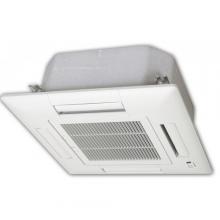Residential air conditioners are fast becoming common household items providing cool breeze during the hot summer months. In the United States of America alone, there are about 60 million home air conditioners that use fluorocarbons. Using these, we can have controlled temperature and humidity at our place. There are three types of residential air conditioners. They are the window room, ductless split and the ducted central residential air conditioner systems.
Most air conditioners uses Hydrochloroflurocarbon (HCFC) which is a major component of the refrigerators and has severe effect on the ozone layer hole becoming bigger. So the manufactures are trying to move towards another component i.e. Hydroflurocarbon 410A which is very energy efficient and reduces the emission of carbon dioxide gas. The Life Cycle Climate Performance (LCCP) index is the measure of the release of Carbon dioxide in Kilograms which results in warming. The percentage of LCCP due to the warming effect of the air conditioner’s refrigerant emission is just less than 5%. The use of hydrocarbon in the residential Air Conditioning system is lesser and the arrangements must be made to reduce the risk due to fire which requires additional investment. The international standards for air conditioners are that it should have refrigerant in air tight containers so that the release of carbon dioxide to the atmosphere is reduced to a great extent. The refrigerant should be able to be recovered, recycled and reclaimed and should not become an atmospheric pollutant. There should be professionally trained servicemen who know well about the working of the residential air conditioner and can handle any malfunctioning. They should be in accordance with the air conditioner standards and should have proper maintenance facilities.

The cost of a residential air conditioner would be in the range of $500 to $10000 and it depends on the different makes and models. It also depends on its seasonal energy efficiency ratio (SEER) which is the ratio of the total cooling output of the air conditioner when it is in normal usage period and the total energy input in the same time.